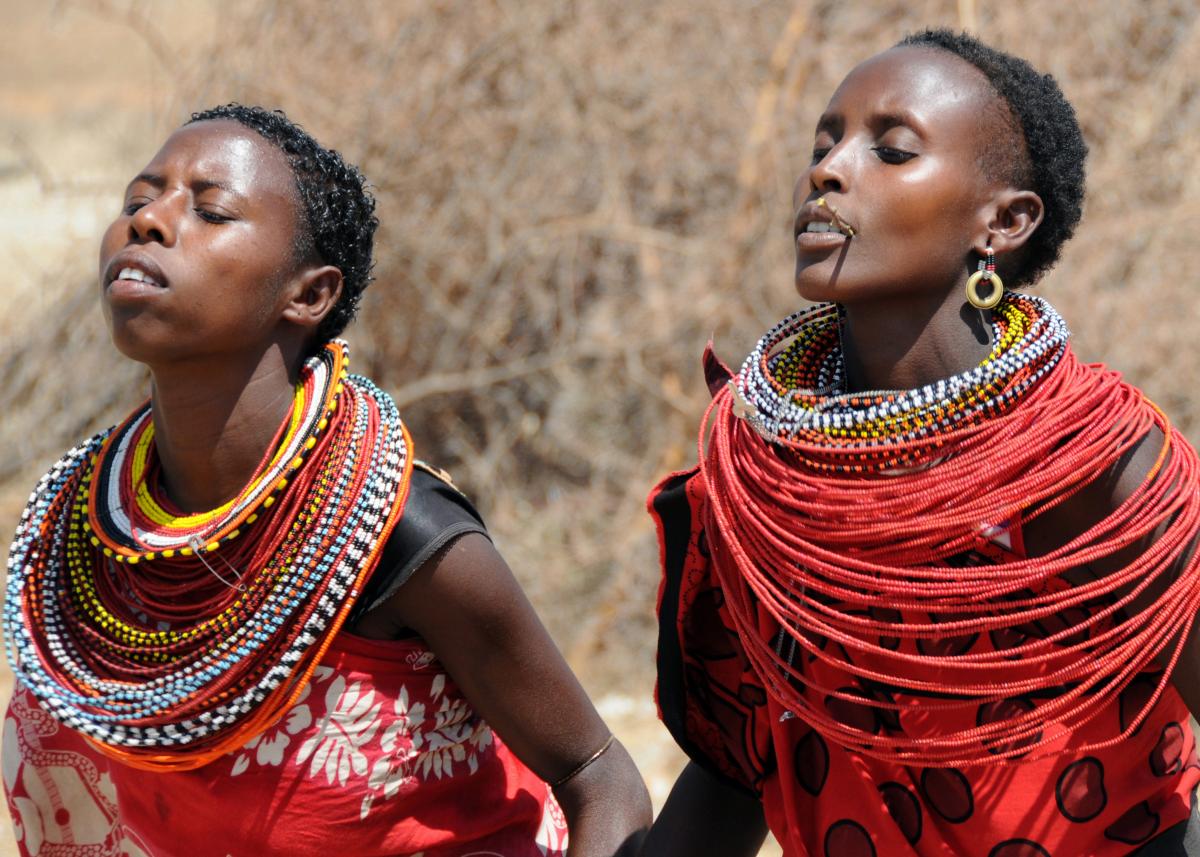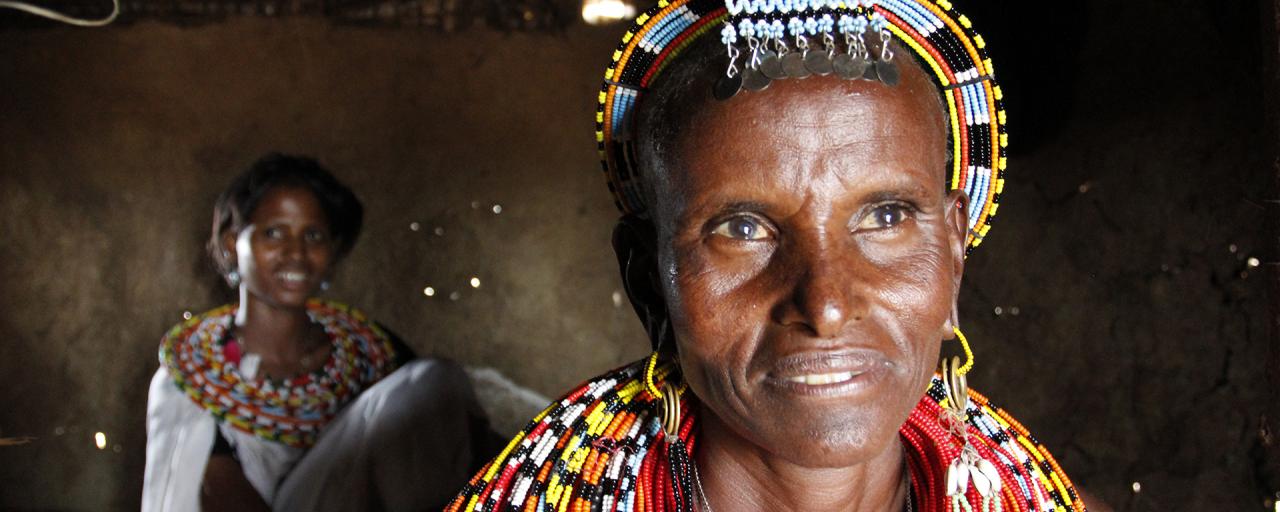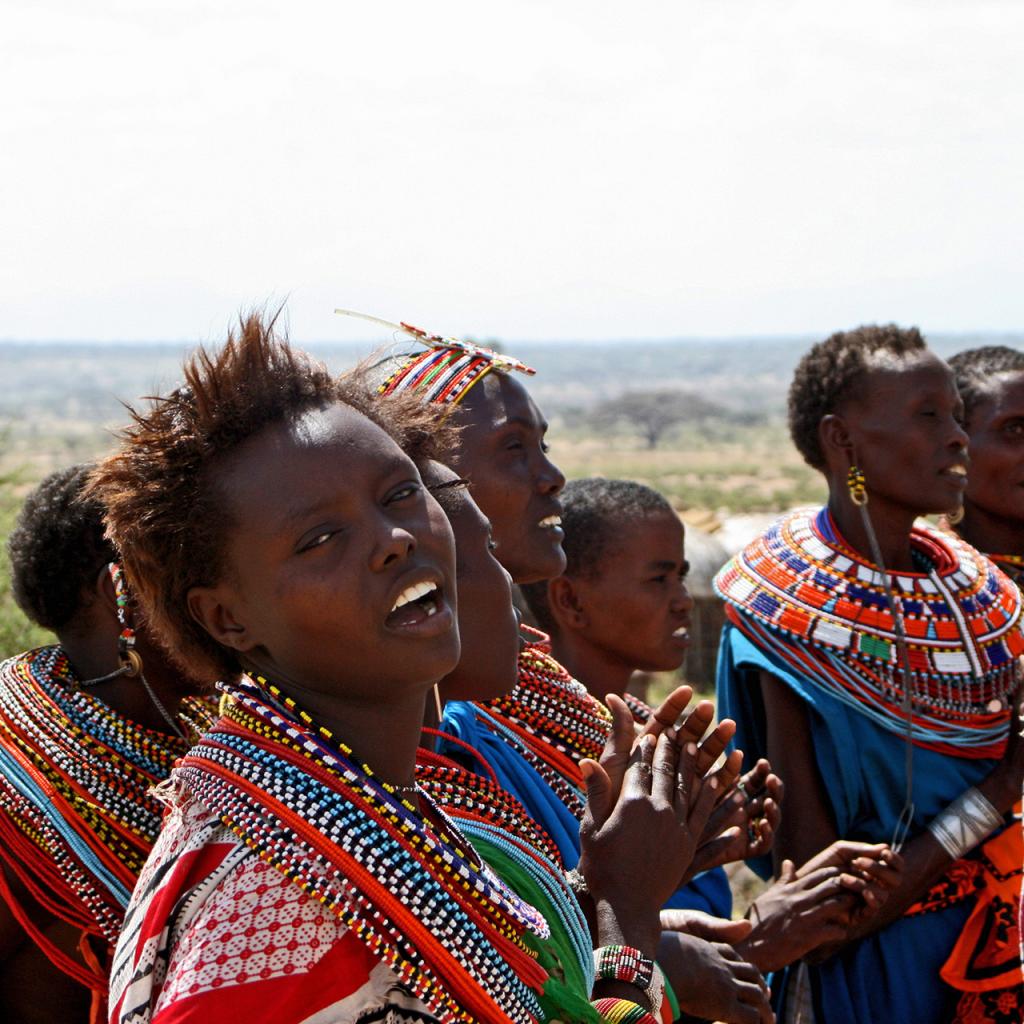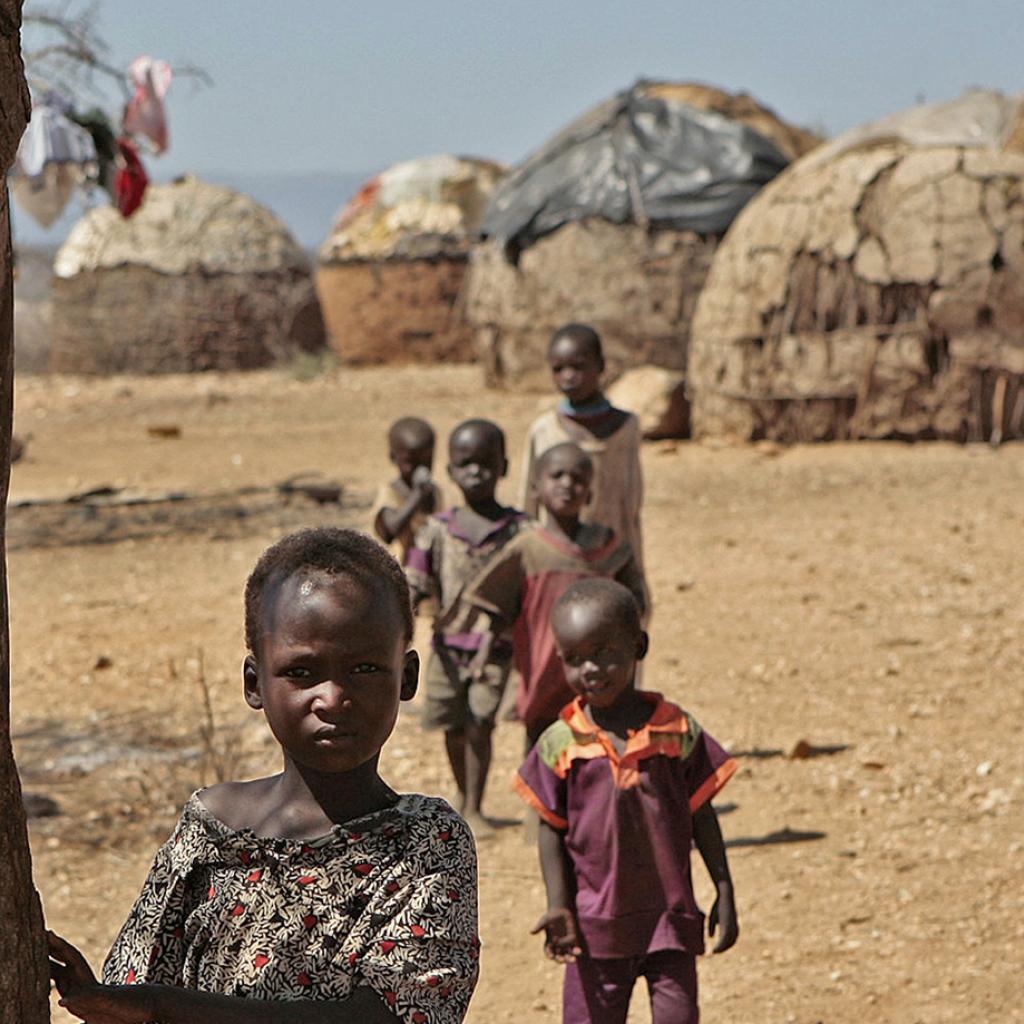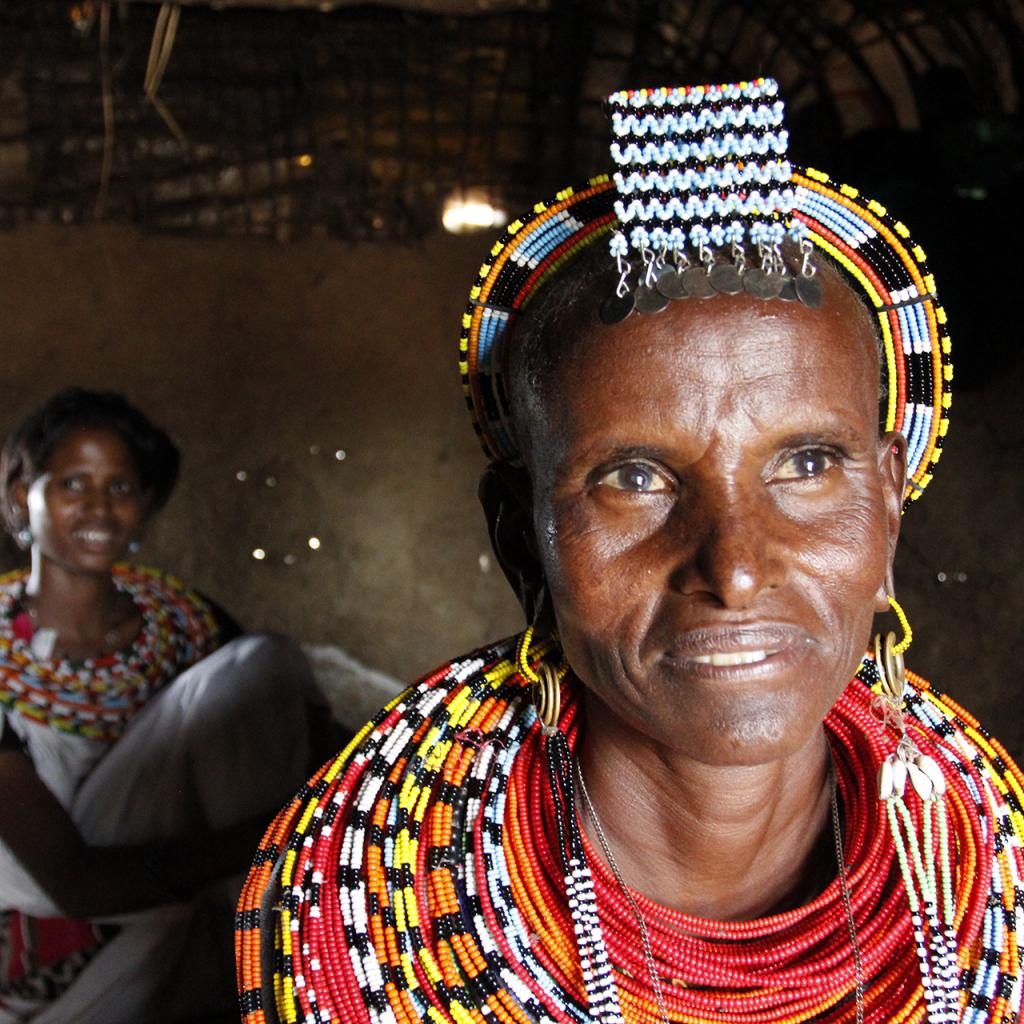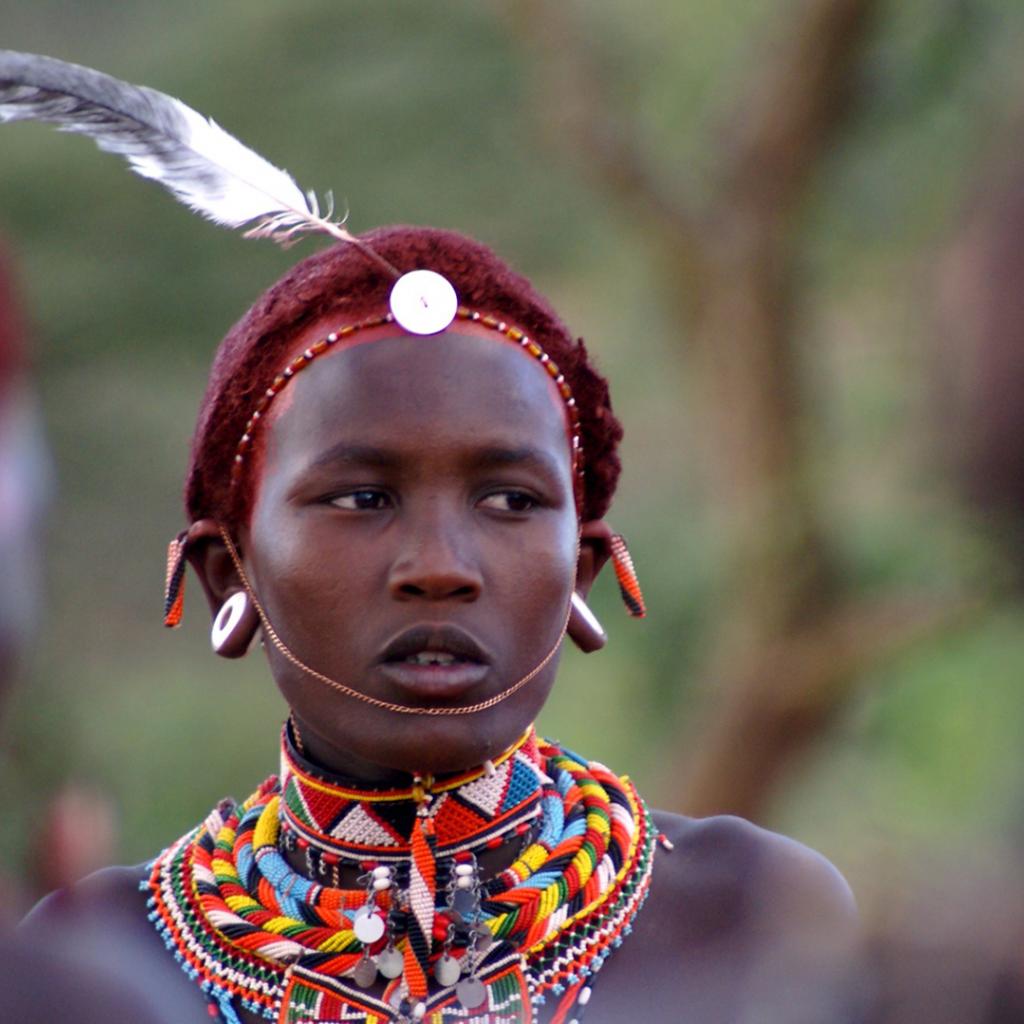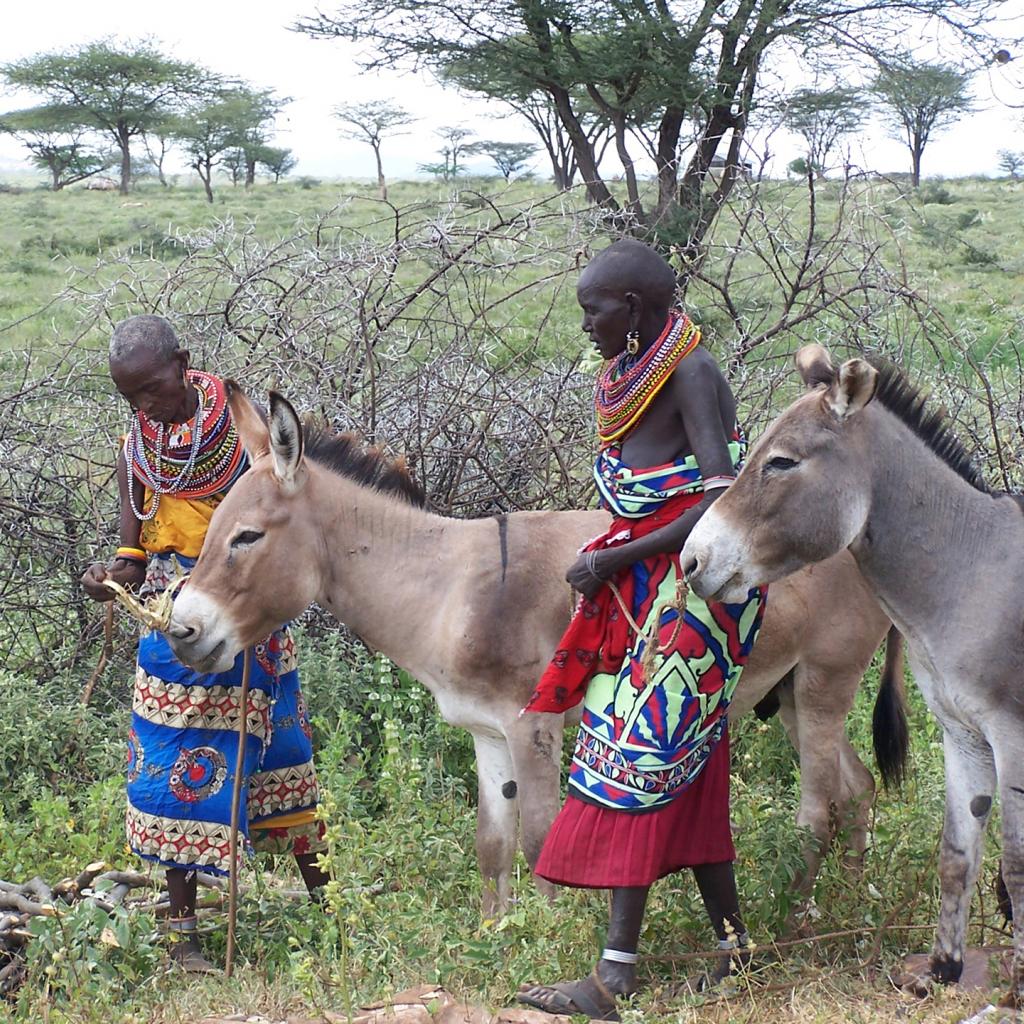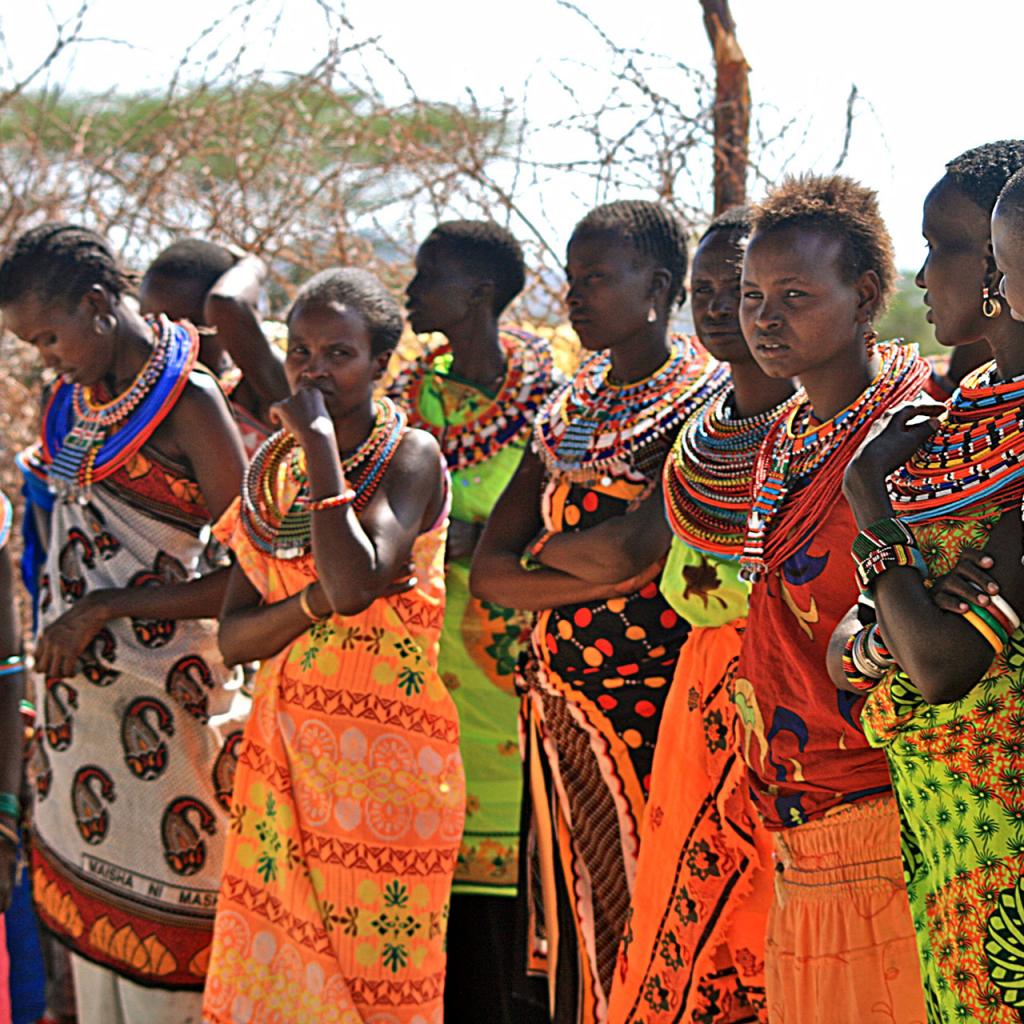The word Nkai is also used to identify a series of guardian spirits that are associated with trees, rocks and some people, but also with the sky and rain; this explains why the Samburu believe that their God is everywhere in the Ng'iro, Marsabit and Kula mountains, where he resides, but also in large trees, caverns and water springs.
The meat of the black sheep is roasted and eaten: the right side is consumed by men while the left part is eaten by women; the blood is mixed with the stomach entrails and is smeared on the huts and animals as a sign of protection from negative influences.
The Samburu also believe in an evil spirit called Milika, who is opposed to the good God Nkai.
Usually magicians-healers and soothsayers do not require a fee but receive gifts like oxen and rams for their service.
Shamans pass on their knowledge and skills down to their children, teaching them the secrets of herbs and poisons; when they die they are buried under a pile of rocks.
Life, tradition and culture of Samburu people
- Samburu social organisation and villages
- Samburu religion
- Samburu rituals and ceremonies
- Livestock farming and diet in Samburu communities
- Samburu jewellery and clothing
